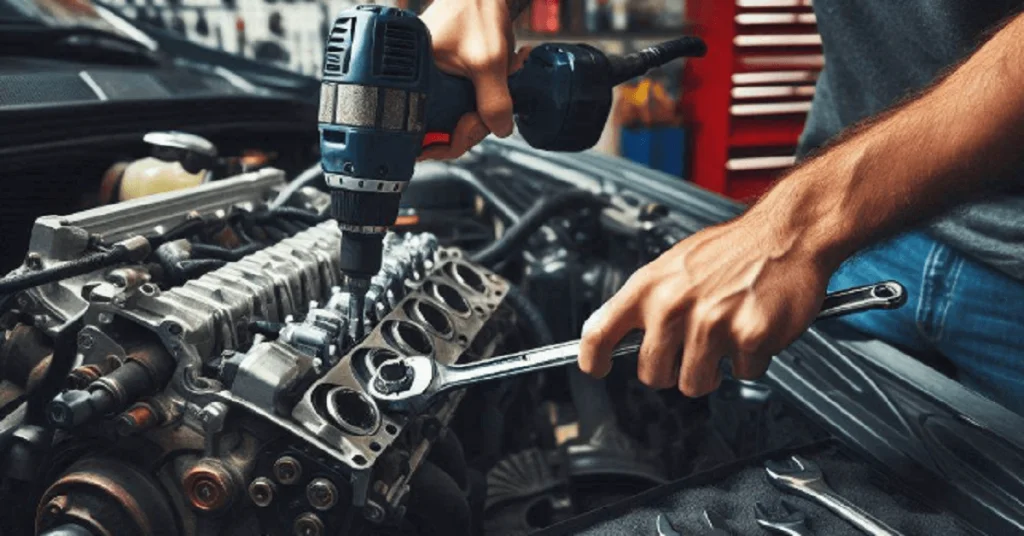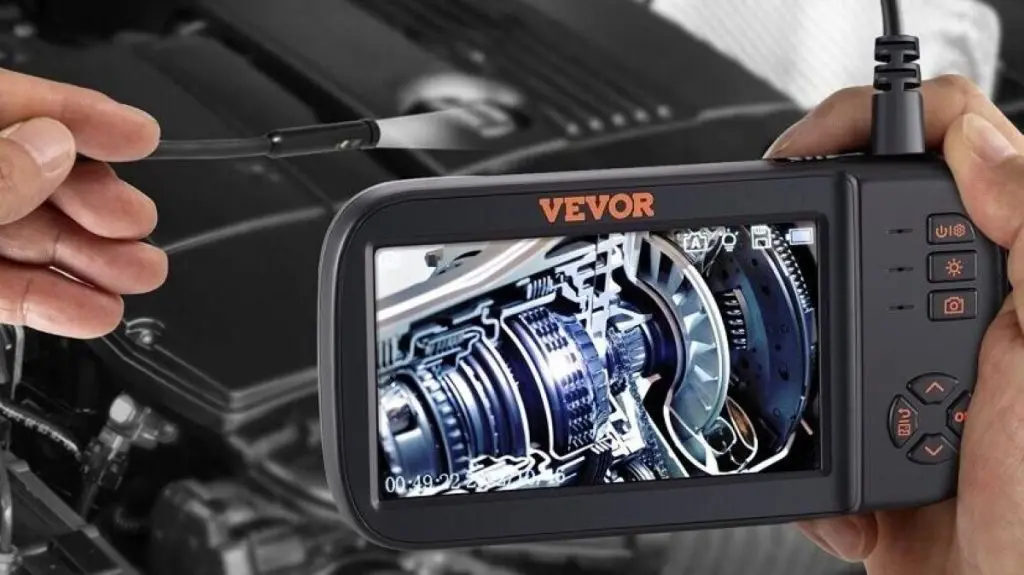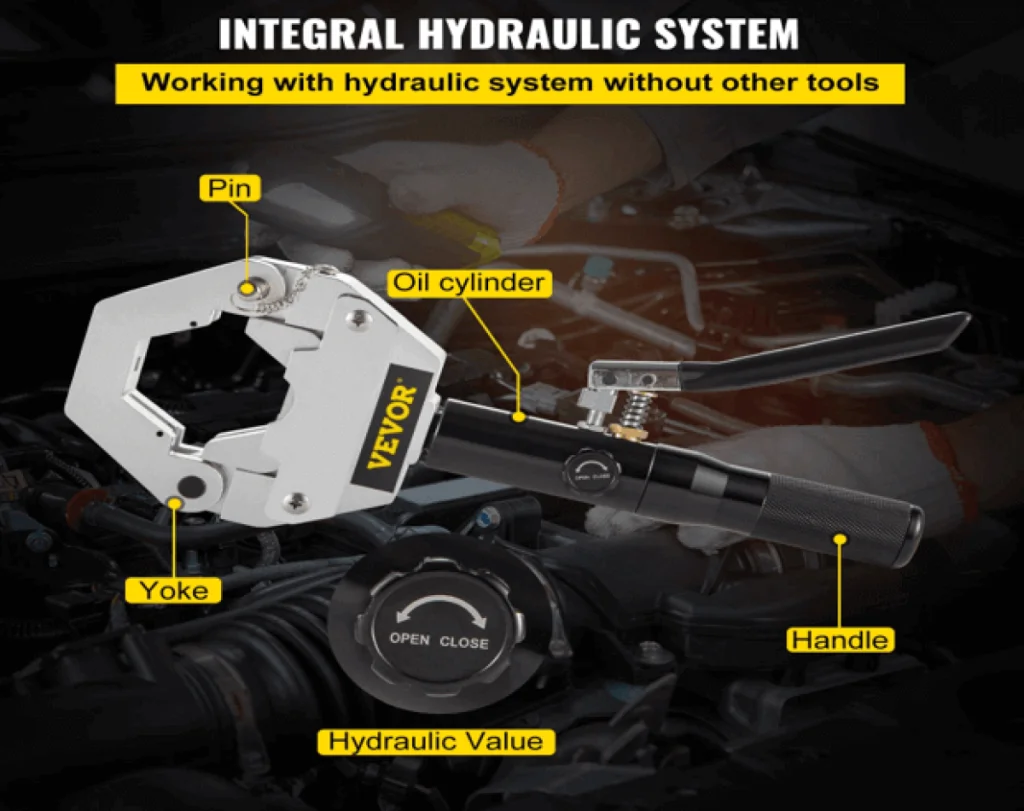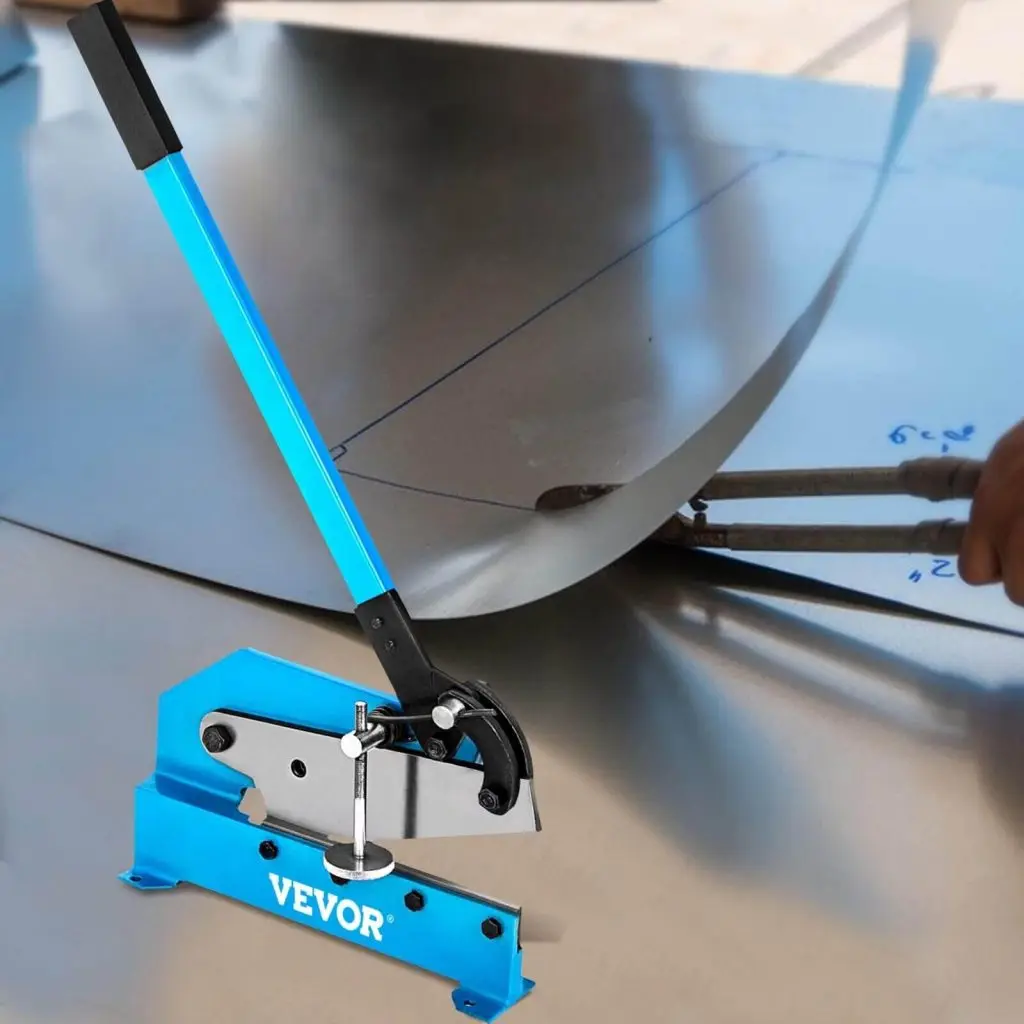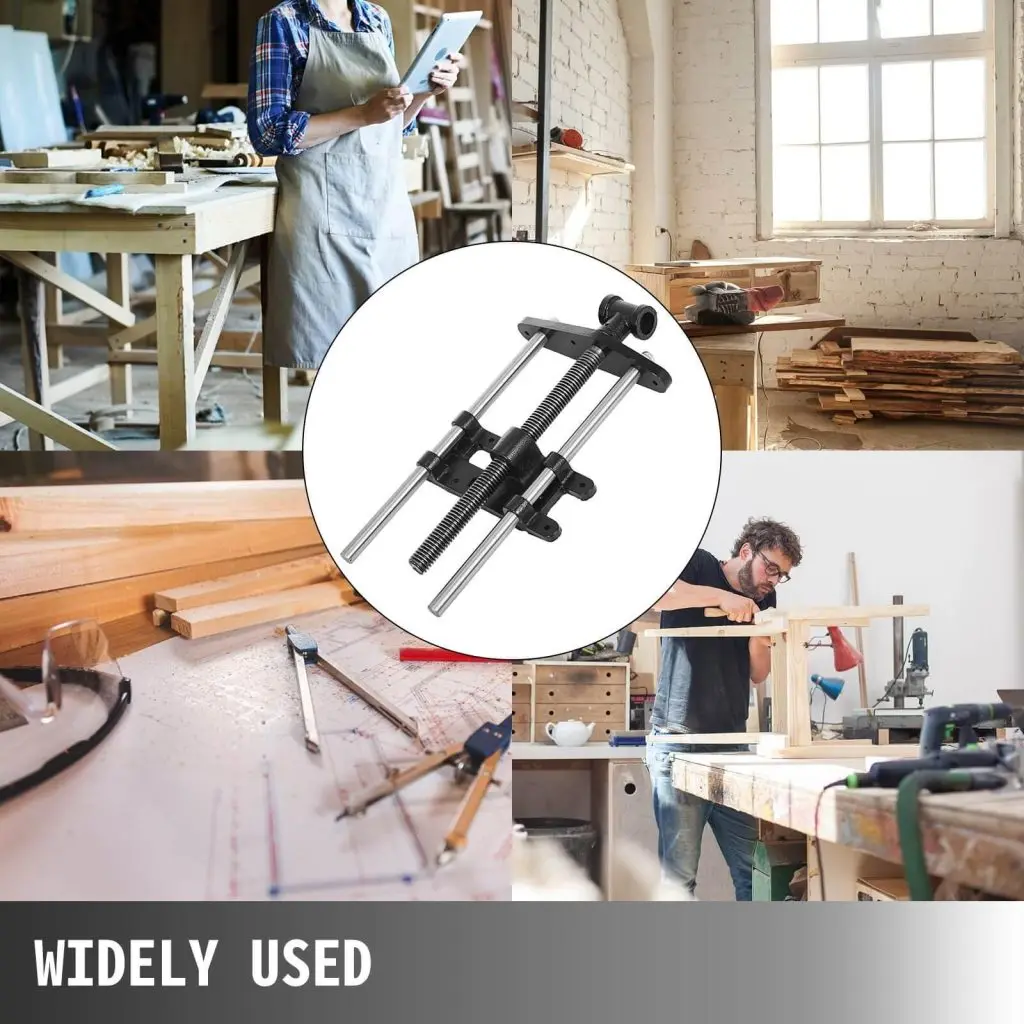If you’ve ever found knee-deep in a DIY project, you know the right equipment can make or break your effort. We all have been there—crawling under the car, greasy hands fumbling for the perfect socket, or perched on a precarious ladder adjusting a squeaky bike chain. In these moments, efficiency, safety, and the longevity of our tools come into play. One common question is, Can I use impact sockets on a ratchet?
This guide will look into the compatibility of impact sockets with ratchets, providing the knowledge to make informed decisions for your projects and ensure your tools’ longevity and effectiveness.
Let’s get started!
Table of contents
What are Impact Sockets?
Impact sockets are specially designed to handle the high torque and sudden impacts generated by power tools like impact wrenches. Imagine trying to unscrew a particularly stubborn bolt; an impact wrench can deliver quick bursts of power to break it free. Now, what makes impact sockets so challenging? They’re made from a resilient alloy known as chrome molybdenum (Cr-Mo).
But before we understand why Cr-Mo is fantastic, let’s clarify what impact sockets are and why they’re unique. Unlike regular sockets, impact sockets have thicker walls and a different construction that allows them to absorb the shock and stress of power tools without cracking or wearing down quickly. So, their primary purpose is to withstand intense, repeated force.
Why Chrome Molybdenum (Cr-Mo) is Special:
- Strength and Durability: Think of Cr-Mo as the superhero of metals. It’s solid and can withstand immense stress without breaking or bending out of shape. This makes it ideal for those heavy-duty jobs where regular sockets might fail.
- Corrosion Resistance: Impact sockets often have a black oxide finish. This finish looks sleek, fights rust, and reduces wear over time. It’s like giving your tools a long-lasting shield against the elements.
Differences Between Impact Sockets and Regular Sockets
Here are a few key differences:
| Feature | Impact Sockets | Regular Sockets |
| Material | Made from tougher materials (Cr-Mo) | Made from chrome vanadium (Cr-V) |
| Wall Thickness | Thicker walls | Thinner walls |
| Finish | Black oxide finish for extra durability | Shiny chrome finish |
| Tool Compatibility | Used with impact tools | Used with hand tools |
| Durability | Withstands powerful forces | Can crack or shatter with impact tools |
Understanding Ratchets
A ratchet is a versatile and handy tool that many DIY enthusiasts and professionals rely on. Unlike traditional wrenches, ratchets allow you to loosen or tighten nuts and bolts without constantly repositioning the tool, making your work faster and more efficient.
Types of Ratchets
There are several types of ratchets, each designed to tackle different tasks:
Standard Ratchets
These ratchets are perfect for most of the job. We call them the heroes of Ratchet.
Flex-Head Ratchets
If reaching tight or awkward spaces is not your thing, you can rely on it. Its pivoting head makes it a lifesaver.
Swivel Ratchets
Swivel Ratchets are ideal for confined areas. Unlike standard ratchets, their handles can pivot to 180 degrees.
Stubby Ratchets
Sometimes ratchets can’t fit into extremely tight spaces where stubby Ratchets play the role.
How Do Ratchets Work?
So, how do these little gadgets work their magic? It’s all about applying force in one direction to tighten or loosen a fastener. Here’s a closer look:
Gear and Pawl Mechanism
Gear and pawl are combos that lock rotation in one direction, easing your work. All you have to do is turn the handle, and you’re good to go!
Direction Switch
Direction switches are perfect for tight spaces because you just have to flip the switch. The flipping allows you to rotate the handle back without moving the fastener tool.
Can I Use Impact Sockets on a Ratchet?
Before taking a final decision, let’s look at the pros and cons of using impact sockets on a ratchet:
Pros
Durability
Impact sockets are usually tough as they are made of chrome molybdenum. This makes them a reliable option even for heavy-duty tasks.
Versatility
The impact socket’s versatility makes it more flexible. It can be used with manual ratchets and impact wrenches.
Enhanced Safety
While working with tools, accidents are normal, but their thicker walls help them withstand and are less likely to crack or break.
Corrosion Resistance
The impact socket’s black oxide finish helps them resist corrosion, which means they’ll last longer even if exposed to moisture or other harsh conditions.
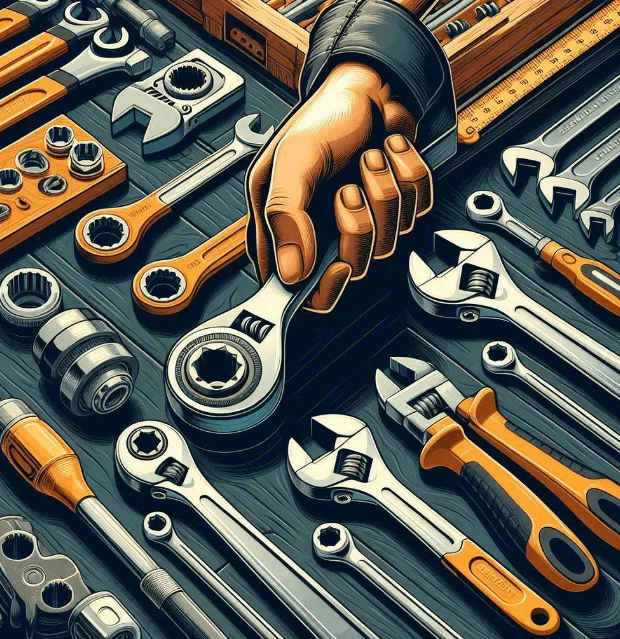
Cons
Weight
Impact sockets come on a bit heavier side. The extra weight can feel tiring if you keep them for a longer period.
Cost
Do you have a tight budget? This may be a big downside for you. Impact sockets are usually more expensive than regular sockets.
Fit and Finish
Regular sockets often have a smoother finish and tighter tolerances, making them easier to use in tight spaces where precision is needed. Impact sockets might feel rougher and less refined.
Safety Tips for Using Impact Sockets with a Ratchet
One should never compromise on safety when working with impact sockets and ratchets.
Here are some easy-to-follow tips to keep in mind:
Make Sure They Match
Unmatched= 0 safety
It’s important to double-check that your socket and ratchet match in size and size to maintain safety while working.
Look Over Your Tools
Always inspect your socket and ratchet for any wear, damage, or cracks. If you find any sign of damage then it’s time to replace them.
Use the Right Amount of Force
Do not apply extra force; stick to the torque limits specified for your socket; otherwise, you will break it.
Wear Safety Gear
Protect yourself by wearing safety glasses and gloves. This helps guard against debris and slips.
Following these tips will help you work more safely and effectively.
How to Use Impact Sockets on a Ratchet Safely
Step-by-Step Guide
Pick the Right Socket
Find the right size impact socket for the fastener you need to work on.
Attach the socket to the Ratchet
Line up the drive square with the ratchet and push the socket in until it clicks into place.
Set the Ratchet Direction
Now, set the direction as per your need with the help of a switch placed on the ratchet head.
Position the Socket
Next, position your socket over the fastener so that it doesn’t slip off and fits perfectly.
Apply Torque
apply the force to the fastener by turning the ratchet handle. remember to go slow and steady to avoid any damage.
Finish Up
After you’ve tightened or loosened the fastener, press the release button (if your ratchet has one) to remove the socket. Make sure to put your tools away correctly.
Common Mistakes to Avoid
Using the Wrong Sizes
Never go for different sizes to prevent stripping and damaging.
Applying Too Much Force
Stick to the provided torque limit, as higher force will damage your socket and ratchets.
Overlooking Tool Condition
Always check the condition of your tools before using it. Using damaged or worn-out sockets and ratchets can cause the tool to fail and may lead to injuries.
Storing Tools Carelessly
Keeping your sockets and ratchets in disarray can lead to damage. Store them neatly in a toolbox or storage case.
Skipping Safety Gear
Not wearing safety gear can lead to injuries from flying debris or accidental slips. Always wear the proper protective equipment.
By avoiding these common mistakes, you can safely and effectively use impact sockets on a ratchet. This will make your tools last longer and help you complete your tasks efficiently.
Why You Should Use Impact Sockets on Ratchets
Choosing the right tools can make all the difference in your work, whether you’re a professional mechanic or a DIY enthusiast. One tool that often gets overlooked is the impact socket. You might want to reconsider if you’ve been using standard sockets on your ratchets. Here’s why:
Durability and Strength
Impact sockets are designed to withstand higher torque. Standard sockets can crack under pressure, but impact sockets are made from more rigid materials, often chromoly steel, which makes them less likely to break.
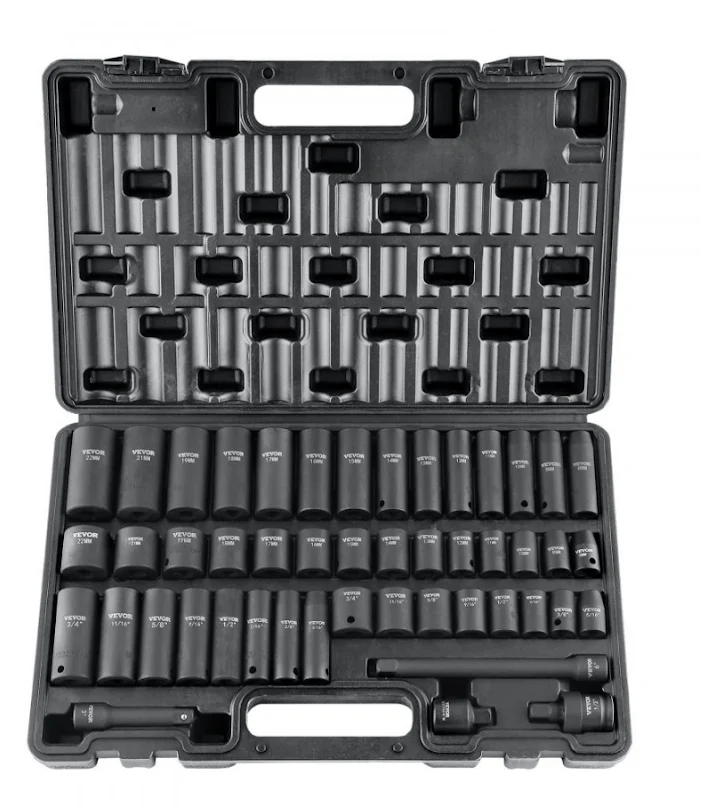
Safety First
Using the wrong socket can be dangerous. Standard sockets aren’t built for the impact and can shatter, posing a risk of injury. Impact sockets have thicker walls and are less likely to shatter, keeping you safer.
Efficiency and Performance
Impact sockets fit snugly on your ratchets, reducing wobbling. This means you can work more efficiently without the frustration of a loose fit. Plus, they can save you time since you won’t need to replace broken sockets as often.
Versatility
Many people think impact sockets are just for professionals, but they’re great for anyone. Whether you’re working on cars, bikes, or household repairs, these sockets can handle various tasks.
FAQs
Can You Use Regular Sockets with an Impact Wrench?
No, you shouldn’t use regular sockets with an impact wrench. They’re not made to handle the high torque and force of impact wrenches, and using them can cause them to crack or break, which can be dangerous. Always use impact-rated sockets with your impact tools for safety and effectiveness.
How Do I Take Care of Impact Sockets?
Keeping your impact sockets in good shape is simple:
- Clean them regularly: Wipe off dirt and debris.
- Dry them well: This helps prevent rust.
- Oil them lightly: A thin coat of oil protects against corrosion.
- Store them properly: Keep them in a dry, organized place.
- Check for wear and tear: Look at them now, and the
In a Nutshell
Navigating the ins and outs of using impact sockets on a ratchet can be a game-changer for DIY enthusiasts and professional mechanics. The right tools streamline your projects and ensure safety and longevity. While impact sockets are primarily designed for high-torque power tools, their robust construction, corrosion resistance, and versatility make them suitable for ratchets. However, weighing the pros and cons, such as increased durability and safety versus added weight and cost, is essential. Do not forget to check out VEVOR’s impact socket, it is totally worth it.

